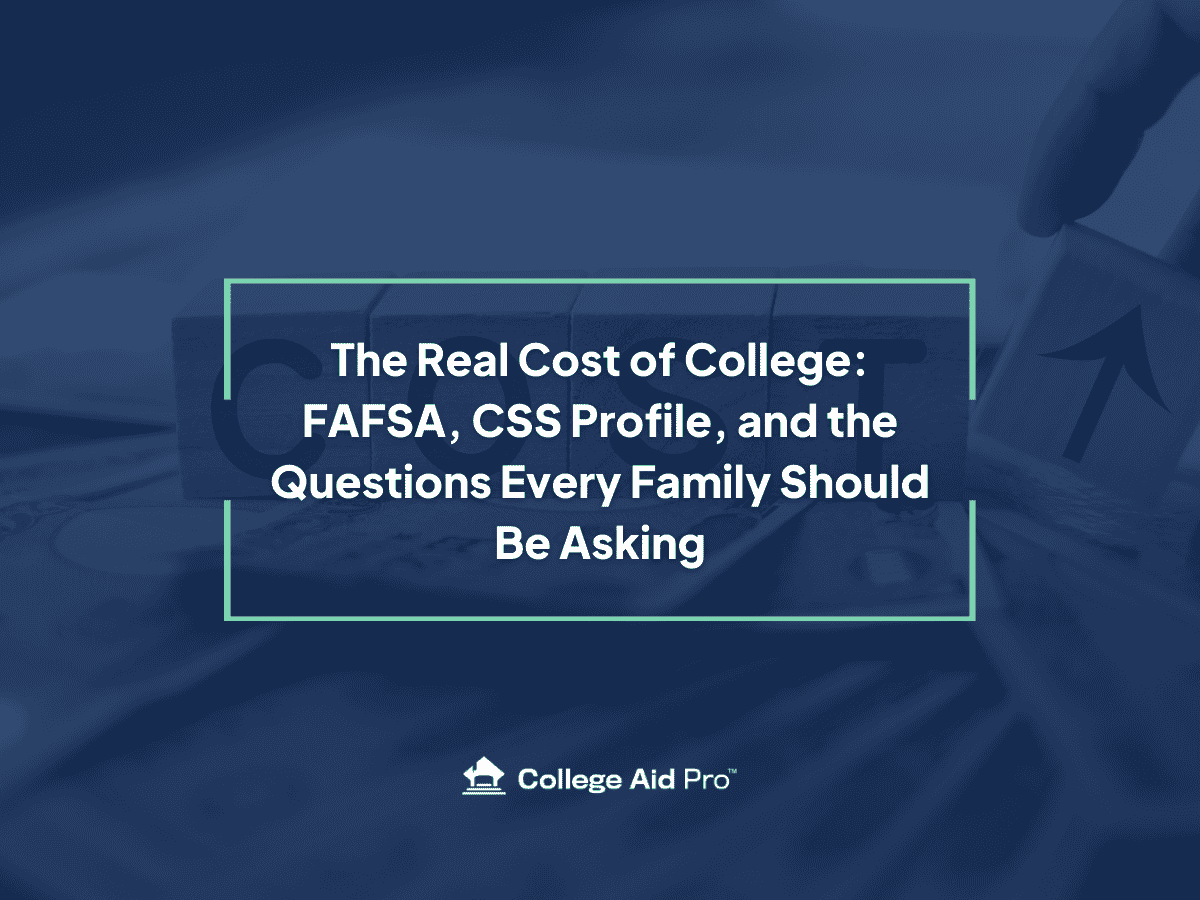Will Asking for More Money Hurt Your Kid’s Admission? Nope. Here’s the Real Deal.
Let’s talk about something that makes a lot of parents feel nervous: asking a college for more money after your child has been accepted.
You’ve got a high school senior. They’ve applied. They got in—yay! And now the college sent you a financial aid letter. It shows how much money they’re giving your student, including things like scholarships, loans, work-study, and any free money from the college itself (this is called endowment money). But… the numbers don’t quite work for your family.
So now you’re wondering:
If we ask for more money, could that hurt our child’s spot at the school? Could they take back the offer?
Take a deep breath. I’ve got great news for you: asking for more money will NOT hurt their admission.
Colleges Expect Appeals

Colleges know that families might need to ask for more help. It’s totally normal. They’ve got people and systems in place for this. Will they always say yes? Nope. But they are absolutely ready to listen. And they expect families to reach out.
I’ve been doing this work for over 10 years. I’ve helped lots of families. Not once—not ever—have I seen a college take away an offer because someone asked for more money. The worst thing that happens? They say no, and you’re out some of your time.
Two Kinds of Appeals: Merit and Need
Now let’s talk about how you ask—because it’s different depending on the type of money.
1. Appealing for Merit Aid
This is money your child got because of how awesome they are—grades, leadership, talents, things like that.
If you’re asking for more merit aid, the student should be the leading the way on this one. They should begin by writing a letter to the admissions office or their admissions rep. And this is the moment for a little heart.
Have your kid explain:
-
Why they love the school.
-
What they plan to do there.
-
How they’ll add to the community.
This kind of letter can be personal, excited, and honest. It’s like saying, “I really want to come here. Here’s why I think I’m a great fit—and I’d be so grateful if you could help a little more, because that’s the only way this is going to work.”
2. Appealing for Need-Based Aid
This is about your family’s finances. It’s money based on income, savings, and what the government says you can pay (now called your Student Aid Index, or SAI—used to be called EFC).
If you’re appealing for need-based aid, this should come from the parent and go to the financial aid office. Keep it simple, clear, and honest.
Explain:
-
What’s changed since you filled out the financial aid forms.
-
Any big costs or hard situations (medical bills, job loss, family emergencies).
-
Attach documents to prove it—pay stubs, bills, whatever shows the full picture.
A Warning: Don’t Appeal If You’re Doing Better Now

This is super important. If your financial situation has gotten better since you filled out the forms, don’t appeal for need-based aid.
Here’s why:
When you ask for more need-based help, the college might ask to see your updated info. If your current year is better than the year you reported (remember, they look back two years), they could give you less money—not more.
This doesn’t happen often. But it can, especially if you don’t understand how the system works. If you’re not sure, please ask for help before you reach out to the college.
Still Worried? Don’t Be.

Let me say it one more time—because I know it’s stressful:
Asking for more money will NOT change the fact that your child got in.
They’ve already been accepted. That part is done. You’re just talking now about how to make it work financially.
This is one of the final steps in the college process. It can feel big and emotional. But it’s okay. Colleges expect it. They’ll listen. Sometimes they say yes. Sometimes they say no. But it never hurts to ask.
Final Thoughts from a Mom Who’s Been There
I’ve walked this road myself—with two kids. I’ve been where you are. And I want you to know you’re doing great.
Appealing for more aid is just part of the journey. Do it with care. Know who should be writing and what kind of aid you’re asking for. Be honest, be clear, and be brave.
And most of all? Know that your child still has that acceptance letter. That’s not going anywhere.
Happy planning. You’ve got this.



